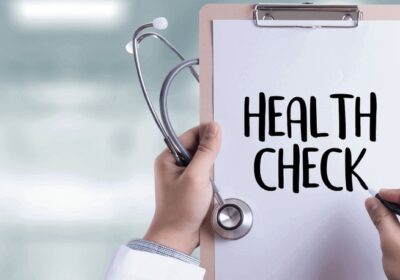
Are You Likely To Develop Ovarian Cysts? – 5 Common Risk Factors
Ovarian cysts are fluid-filled sacs that develop on or inside an ovary during or following ovulation. The sac or follicle holds the maturing egg until it is released. If the egg does not get released or the follicle shuts after the egg’s release, it fills with fluid, causing an ovarian cyst. Ovarian cysts are prevalent, impacting millions of pre-and post-menopausal women. Although numerous Garden City ovarian cysts exist without apparent symptoms and shrink or disappear by themselves, some could cause discomfort and other complications. Here are the risk factors that could make you more susceptible to this condition.
- Hormonal Imbalance
When progesterone and estrogen are balanced, they trigger the body to release an egg monthly. Unfortunately, if there are imbalances, your ovary might not get the signal required to release an egg, which leaves the follicle closed and ready to develop an ovarian cyst.
Taking hormones promoting ovulation as an element of fertility therapy could also heighten your risk of developing ovarian cysts. The fertility medication Clomid (clomiphene) is linked with a greater likelihood of ovarian cysts as the drug can induce the development of several follicles in your ovaries. Follicles that do not break open to release the egg fill up with fluid, which develops into ovarian cysts.
- Pregnancy
Numerous women develop ovarian cysts, known as corpus luteum cysts, in the early phases of pregnancy.
Once the follicle releases an egg, this follicle shrinks into a structure known as the corpus luteum. This structure secretes hormones to ready the uterus for conception.
The corpus luteum supports pregnancy in the early phase till the placenta forms, often by the third month. At this point, the corpus luteum generally disappears. However, in some instances, the corpus luteum does not disappear, and, instead, gets filled with fluid, developing into an ovarian cyst. Often, this cyst does not affect pregnancy.
- History Of Ovarian Cysts
If you have an individual history of ovarian cysts, you will likely develop more. Continuous hormonal imbalances or another physical issue could cause this issue. To avoid the recurrence of ovarian cysts, your doctor may suggest hormone-regulating contraceptive pills. Unfortunately, although this measure avoids the emergence of more ovarian cysts, it does not address the existing ones.
- Pelvic Infection
A common pelvic infection like pelvic inflammatory disease (PID) contributes to the emergence of ovarian cysts. This concern might happen once bacteria from the infection invade the cervix, and spread to the ovaries.
Such cysts are often packed with bacteria. Suppose the infected cyst ruptures, it could release bacteria that cause sepsis, a possibly fatal condition. Treatments for infected ovarian cysts include oral antibiotics or the physical drainage of the cysts to avoid sepsis.
- Endometriosis
Endometriosis is a chronic concern where uterine tissue develops outside the uterus. This tissue can develop on other pelvic organs, including the fallopian tubes, vagina, rectum, bladder, and bowel.
However, this tissue could also develop on or inside the ovaries. In this case, the tissue creates cavities inside the ovaries that fill with blood. These ovarian cysts could affect your ovaries’ health and even cause fertility issues.
If you have been diagnosed with an ovarian cyst, you are not alone! Although this condition is generally harmless, it is important to consult a medical professional about how frequently you will need a regular pelvic exam. Most ovarian cysts will disappear by themselves. However, if your cysts cause troubling concerns like intense pelvic pain, fever, unexplained bleeding, pain during intercourse, pregnancy difficulties, and more, you might need specialist care. Based on the specific cause of your ovarian cysts, your doctor may suggest antibiotics, changes in birth control pills, and sometimes surgery.


















